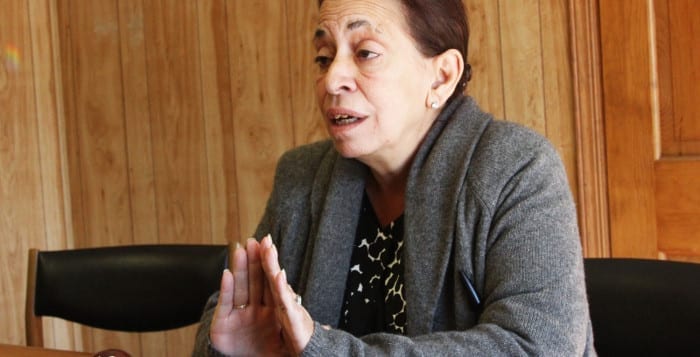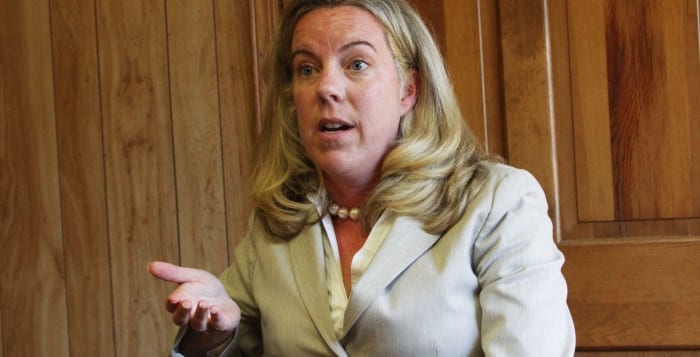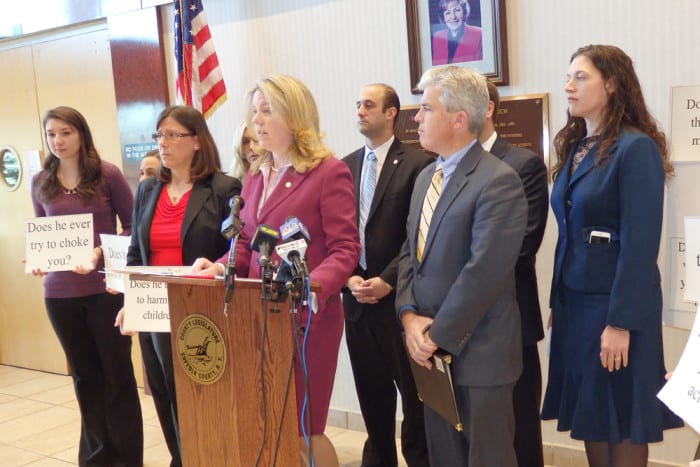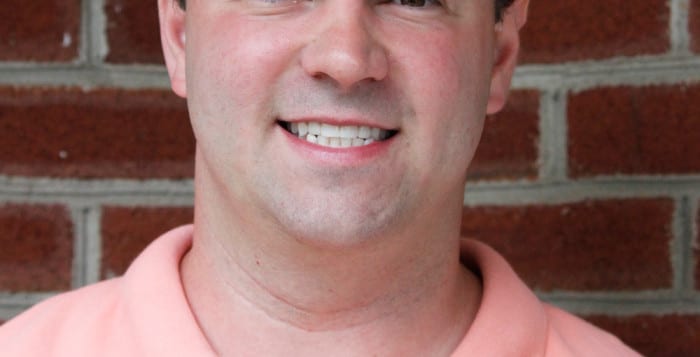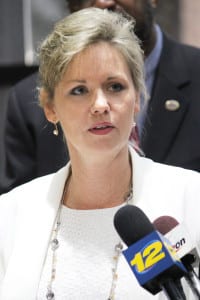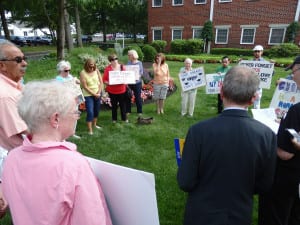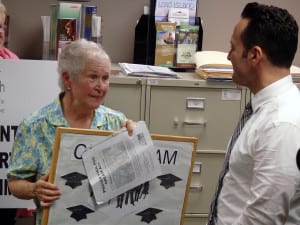Just months removed from a special election that brought her into office, Suffolk County Legislator Leslie Kennedy (R-Nesconset) faces her first re-election bid.
Kennedy was elected to represent the 12th District — which includes Smithtown, Nesconset, Hauppauge, the Village of the Branch, Lake Grove, and parts of Commack, Islandia and Ronkonkoma — in April to succeed her husband, former county legislator and now county Comptroller John Kennedy Jr. (R), and has since placed constituent concerns at the core of her campaign. Her Democratic opponent, Adam Halpern, has not actively campaigned and did not attend a debate at the Times of Smithtown’s headquarters.
In the interview, Kennedy prided herself as being a researcher and a behind-the-scenes government official who wears her heart on her sleeve. While serving on the county’s operating budget committee, she said she takes the county’s finances very seriously and often refers to tax dollars as “OPM” — other peoples’ money.
“I debated hard whether or not to run, but I love government,” she said. “I love the ability to help and serve. There has to be a voice of reason that realizes the enormity of the financial problem we are in.”
With her husband also serving the county as comptroller, Kennedy said she gained perspective on what kinds of things Suffolk could and should do to make money.
“We don’t collect what we should collect,” she said, referring to certain taxes not being actively pursued in areas like hotels, motels or bed and breakfasts. “We need to recoup that money. If we did, we wouldn’t be seeing historical buildings fall, or arts and entertainment budgets being cut.”
The legislator has spent her time pushing for top-tier constituent services while also keeping her ear to the ground when it comes to the county’s business community. She has been attending several Suffolk County Industrial Development Agency meetings since being elected and said she wanted to work to employ tax incentives to draw businesses to the region.
As for quality of life concerns, Kennedy said public safety projects like new sidewalks and infrastructure upgrades were top priorities of hers. She has also identified herself as an environmentalist and backed that up by pushing for projects that aim to clean up the county’s water.
One of her biggest qualms with how county government works, Kennedy said, was an overabundance of management. If re-elected, she said she would advocate for less management and more action.
“We’re top heavy,” she said. “There is more management than necessary. I have never seen so many titles.”
In order to make the county a more vibrant place for young people to grow and raise families, Kennedy said the Legislature needed to act on keeping taxes low and the streets safe. If re-elected, she said she would keep her constituents at the heart of her decision making.
“We have to get our act together,” she said. “It’s sad to watch people have no opportunities. They are struggling to stay in their houses and I don’t think life should be that hard.”

